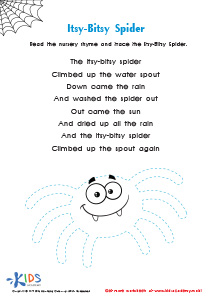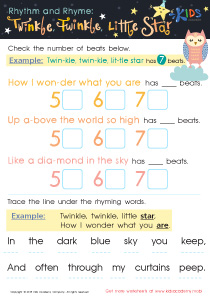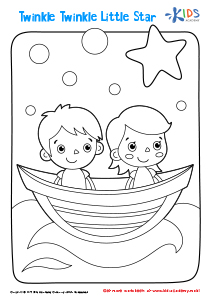Nursery Rhymes Worksheets for Ages 3-9
5 filtered results
-
From - To
Enhance your child's learning with our engaging "Nursery Rhymes Worksheets for Ages 3-9." These expertly designed worksheets promote literacy, creativity, and cognitive skills through beloved nursery rhymes. Each printable activity captures children's imaginations, offering coloring pages, puzzles, and word tracing exercises inspired by timeless classics. Perfect for both classroom and at-home use, these worksheets enrich vocabulary, improve fine motor skills, and foster a love for reading. Let's make learning fun and memorable as your little ones explore the enchanting world of nursery rhymes, building a strong educational foundation that will last a lifetime.
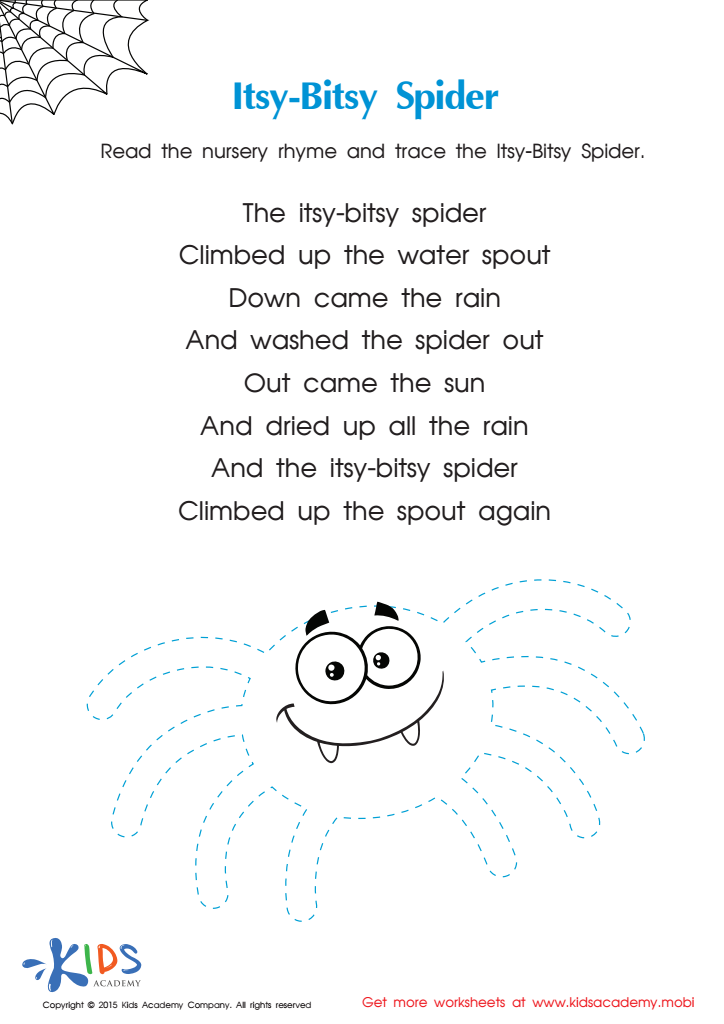

Itsy Bitsy Spider Nursery Rhyme PDF Worksheet
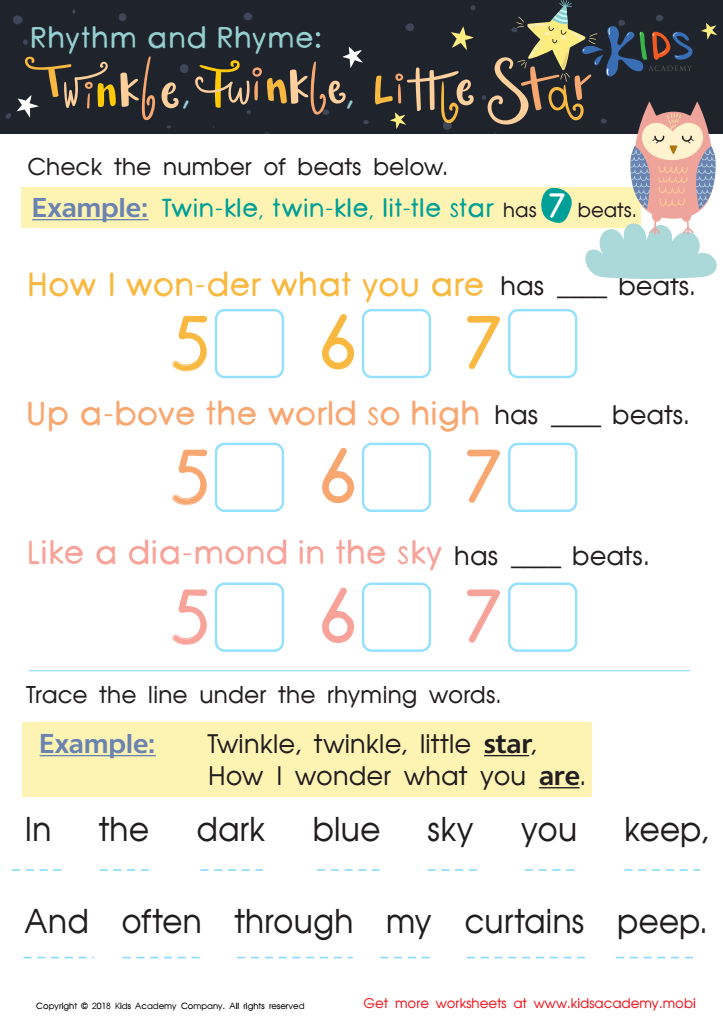

Rhythm and Rhyme: Twinkle, Twinkle, Little Star Worksheet


The Five Little Monkeys Nursery Rhyme Worksheet
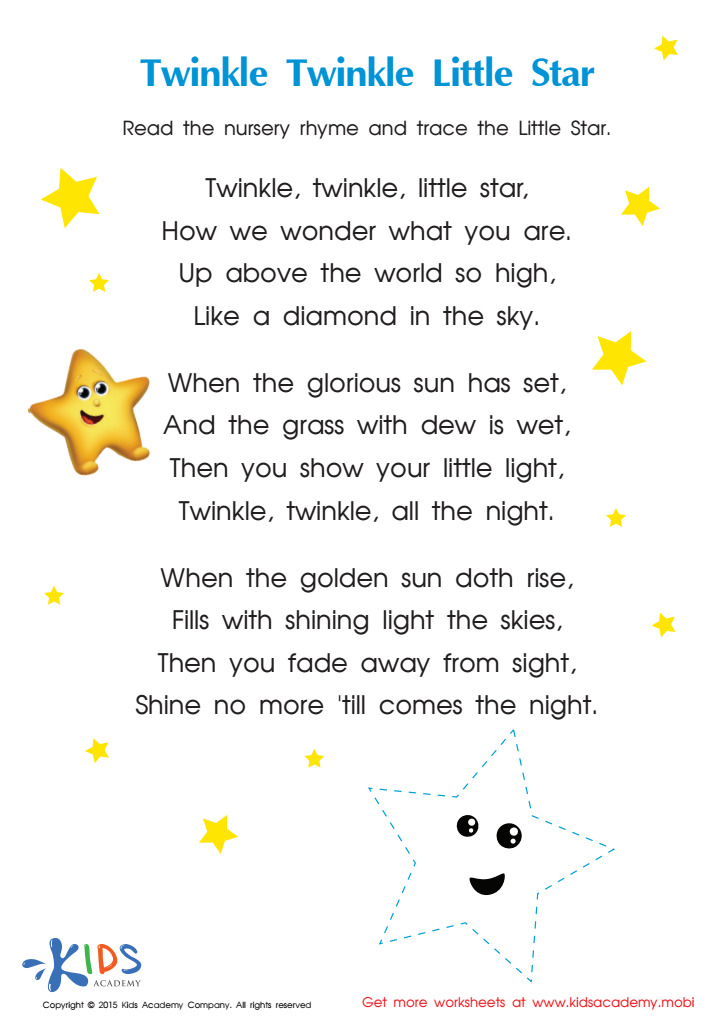

Nursery Rhymes: Twinkle Little Star Worksheet
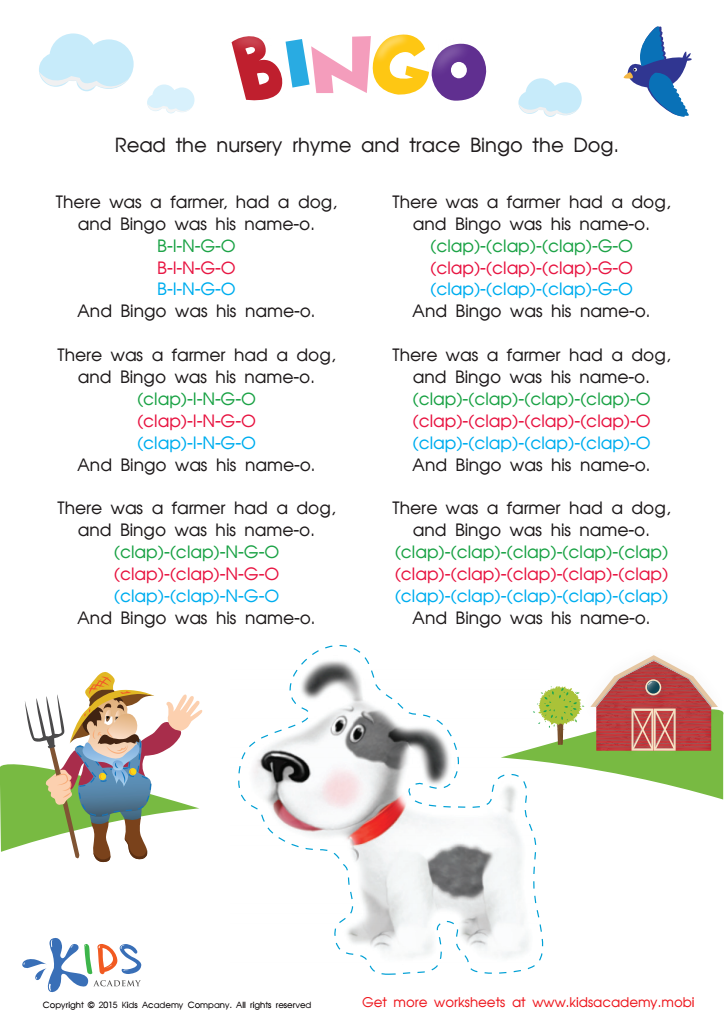

Nursery Rhymes: The Bingo Song Worksheet
Parents and teachers should highly value nursery rhymes for children ages 3-9 because these simple, musical verses offer far-reaching developmental benefits. First and foremost, nursery rhymes enhance language skills. Rhymes introduce new vocabulary and the repetitive nature of the lyrics helps solidify this new language in young minds, making them excellent tools for building foundational literacy. Additionally, rhymes develop phonemic awareness, teaching children about the sounds and rhythms that create words, an essential pre-reading skill.
Moreover, nursery rhymes often incorporate counting and sequencing, subtly introducing basic mathematical concepts. Beyond academics, they foster social and emotional growth. Reciting rhymes together can create a sense of community and shared culture, and they often tell stories with characters, situations, and emotions that help children learn about the world and reflect on their feelings.
Physical activity is another benefit; many nursery rhymes are paired with movements or dances, aiding in motor skill development and teaching coordination.
Incorporating nursery rhymes into daily routines lays a rich foundational layer for children's academic success, emotional well-being, and physical development, making them a treasured educational tool for parents and teachers alike.

 Assign to the classroom
Assign to the classroom






